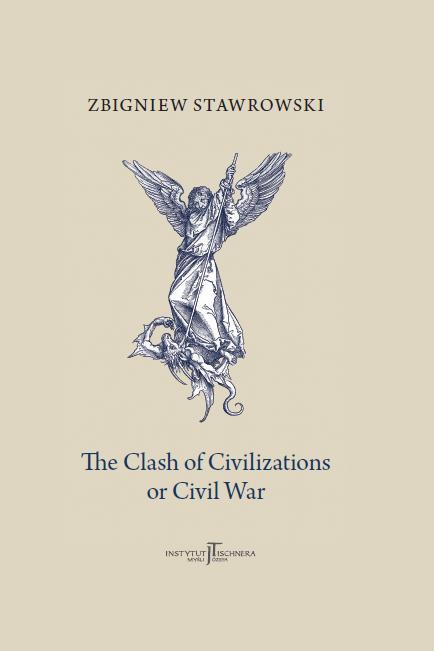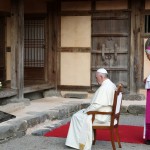“Democracy as a Confessional State”
Chapter II of the book: Zbigniew Stawrowski. The Clash of Civilizations or Civil War, Kraków 2013
The term ‘confessional state’, understood as ‘fundamentalist state’, evokes clearly negative associations and emotions in democratic societies. The context in which it appears in the media is usually full of horrific images of Islamic fundamentalism, or reaching for closer examples, the vision of the Catholic Church, attempting to convert sinners with the help of legal regulations. While noticing the exaggeration with which all the symptoms of the fundamentalist state – both real and imaginary – are sometimes highlighted, reserve towards it is nevertheless fully understandable. Underlying such a reaction is the long tradition of religious freedom, which for a few centuries in the framework of Western Civilisation has defined the standard reflection on man and the political dimension of his life. In fact, the ideal of the tolerant state, impartial towards various belief groups, with an underlying vision of man as an autonomous being, capable of making moral choices, is opposite and rival to the concept of the fundamentalist state. But such an assertion can be only the beginning of reflection. The question of the fundamentalist state is, however, significantly more complicated than it seems at first glance, and its modern symptoms may indeed assume unexpected forms.
 By ‘confessional state’ we usually think of a state, of which activities have been subordinated to the aims of a certain religious community, which does not tolerate attitudes, behaviour and customs contrary to the canons which correspond to this community. Of course, there may be various degrees of intolerance towards others: from petty annoyances, to ruthless persecution. In every case, the decisive factor is that the citizens who do not identify themselves with the dominant community become, to a certain degree, second-class citizens in relation to the privileged people representing the ruling belief.
By ‘confessional state’ we usually think of a state, of which activities have been subordinated to the aims of a certain religious community, which does not tolerate attitudes, behaviour and customs contrary to the canons which correspond to this community. Of course, there may be various degrees of intolerance towards others: from petty annoyances, to ruthless persecution. In every case, the decisive factor is that the citizens who do not identify themselves with the dominant community become, to a certain degree, second-class citizens in relation to the privileged people representing the ruling belief.
However, if we recognise the division of citizens into privileged and persecuted belief groups as the most essential aspect of such a state, the very concept of ‘confessional state’ turns out to be too narrow, not to say – ideologically falsified. It imposes associations which shift our attention from essentially analogous, although not less dangerous, phenomena. The adjective ‘confessional’ sends us to politically expansive religious communities and allows one to forget about all the projects of the state which, in the name of some ‘secular’ ideology, force their citizens to behave in conflict with their conscience. In order to take into account the full spectrum of similar phenomena, we can of course remain with the term ‘confessional state’, but then we must understand it widely as a concept also covering programmatically irreligious and anti-religious ‘fundamentalism’.
Instead of the term ‘confession’ of a given group, it seems more appropriate to refer to a more universal category – to the language of ethics. Every ‘confessional’ or ‘belief’ group appears from this perspective as an ethical community, that is, a community of people who possess a set of commonly held values, or in others words, who are united by a common ethos, defining the identity of this group. The concepts ‘ethical community’ or ‘ethos’ have here a descriptive and not evaluating character. In this sense we can therefore speak of, for example, the ethos of a specific family or of a religious commune, but also of the ethical foundation of the identity of members of the Sicilian Mafia or SS officers.
However, none of the communities mentioned above usually consider themselves as fully “self-sufficient”, rather, they have also a sense of belonging to a wider community: ethnical, national, religious or ideological. From the point of view of the problem of the ‘confessional state’, it is precisely the ethically self-sufficient communities that have a fundamental significance, i.e. those which, beside themselves, do not recognise any community as more basic and extensive. Ethical self-sufficiency of a community means that for a person who identifies himself with it, the specific content of its ethos – the common conviction of its members about what is right and what is wrong – is treated as unquestionable, absolute good. Absolute in the sense that – looking from within the community through the eyes of its members – apart from the specific content of the given ethos we do not notice anything else, which could constitute a measure of good and evil.
By introducing the above definition, let’s accept that one may talk of a ‘fundamentalist state’, in the widest sense of the word, when, in an ethically diverse society, one of the self-sufficient ethical communities exploits the state institutions – which in their essence combine with coercive measures – in order to impose their own system of values (own ethos) on the other ethical communities, and at the same time make it universally obligatory.
The condition of ethical diversification – the co-existence in one political organism of different communities and different value systems – is essential in that, without its fulfilment, the fundamentalist state does not appear as a problem at all. In ethically homogenous societies, for instance in an ancient polis, the support by the rulers of an ethos of a given community was something natural and obvious. The authorities, actively caring about the ethical unity and identity of the community, undoubtedly functioned in accordance with the logic of a fundamentalist state. However, interference aimed at protecting time-honoured customs was not perceived by citizens as the imposition of foreign values, but, rather, as a reminder of what is close and accepted by everyone. Such an attitude towards the state, which guarded the ethical unity of the community, is well illustrated by the behaviour of Socrates, who was accused of the most serious crime against Athenian society – of atheism and the demoralisation of youth. Although Socrates did not agree with the injustice of the accusations, he respected the sentence issued on the basis of the law, which punished the violation of the ethical cohesion of the community with the death sentence. His critical attitude towards the religiousness and customs of Athenians was a criticism from inside the ethical community, with which he identified himself to the end.
The situation appears to be different when, in the framework of one political organism, communities of different ethical identities appear. A fundamental question arises: can the ethically diverse communities maintain political unity, and if so, on what basis? This dilemma has found a threefold solution in history.
The first answer – typical for the concept of the fundamentalist state – is negative. There is no other foundation of the unity of the state than the ethical community. If in a state there appears ethical diversification, then everything should be done to restore the violated unity. The political community must be at same time an ethical community, therefore it must defend its ethical identity with the help of coercive measures characteristic of the state. In such a situation, members of other ethical communities are condemned to some form of persecution, which in a radical version could take the form of extermination of ethically “foreign” people, that is national minorities, classes, religious or racial groups not able to assimilate themselves. In search of prototypes of such an understanding of the political community, one may quote the order to kill off the people of Canaan, which the nation of Israel received before crossing to the Promised Land, and which was supposed to save the purity of its world of values and not allow the penetration of foreign beliefs and customs.












